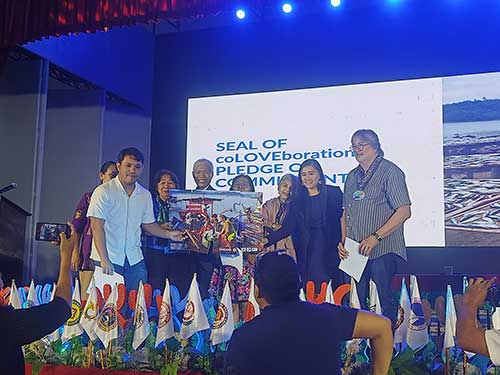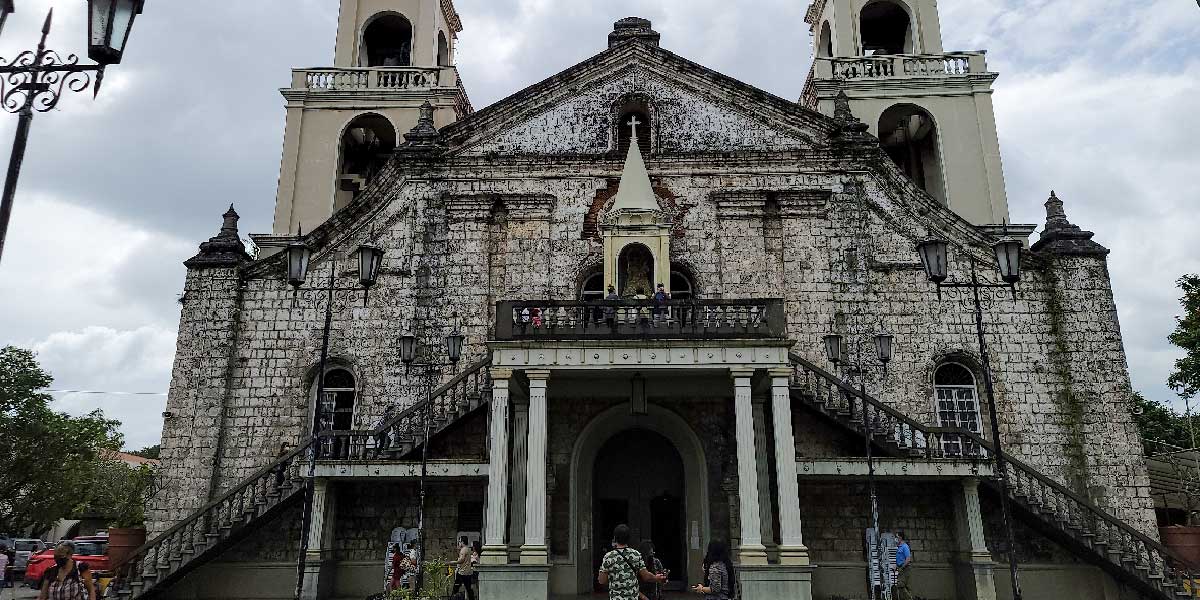
By Juliane Judilla
The Philippines’ first-ever Small-Scale Fisheries National Symposium was held on October 16-18 at the University of the Philippines Visayas (UPV) in Iloilo City, bringing together a wide array of stakeholders to address critical issues in the fisheries sector.
Organized by Too Big To Ignore (TBTI) Philippines, the three-day event, themed “Small-Scale Fisheries in the Philippines are Too Big to Ignore,” aimed to strengthen sustainable small-scale fisheries (SSF) through collaboration among fishers, scientists, managers, researchers, and advocates.
The event opened with keynote speaker Roberto “Ka Dodoy” Ballon, a fisherfolk leader and 2021 Ramon Magsaysay Awardee, who emphasized the importance of experience and integration in crafting beneficial policies for the sector.
“I am a graduate of the University of Actual Experience (UAP) and hold a ‘PhD’ or ‘Person with High Dedication,’” Ka Dodoy humorously noted.
In an interview, Ka Dodoy highlighted the need for minority sector representation, saying, “Municipal fishers face severe issues and rampant poverty, and the national government gives little to no support to the fisheries sector or to sustaining the livelihood of small-scale fishers.”
The symposium also provided a platform for fisherfolk from different communities to share their challenges.
Leo Logronio, president of the Carles Fisherfolk Association in Iloilo, discussed the dangers of illegal, unreported, and unregulated (IUU) fishing, a practice he once engaged in but now advocates against to conserve Marine Protected Areas (MPAs).
Fredel Mued, an indigenous fisherfolk and fish consolidator from Busuanga, Palawan, stressed the need for education on preserving ancestral waters, pointing out that despite the Indigenous Peoples’ Rights Act (IPRA) being passed 27 years ago, Indigenous peoples’ rights are still not fully recognized.
“The recognition of the rights of indigenous peoples to their own land and ancestral waters is still not fully realized,” Mued said, calling on the state to fulfill its duty to protect ancestral domains.
Nanette Cadutdut, a fish processor from Busuanga, Palawan, shared how food preservation has helped her community’s livelihood and promoted sustainable food practices. She urged more people to learn preservation techniques to combat food insecurity.
Gavina Tumbaga, a fisherfolk and law enforcement officer from San Fernando, La Union, highlighted the importance of citizen participation in local governance. She called on local government units (LGUs) to support the enforcement of fisheries laws and pushed for the departmentalization of the Bureau of Fisheries and Aquatic Resources (BFAR).
“With the vast coastal areas of the Philippines, it’s high time for our legislators to uphold the departmentalization of BFAR,” Tumbaga said. She noted that BFAR’s small budget hinders its ability to address both the needs of small-scale fishers and environmental conservation efforts.
The symposium also featured discussions on how to strengthen connections between various agencies and stakeholders. Researchers and students from state universities and colleges (SUCs) presented studies and research papers on fisheries-related topics.
The event was organized in collaboration with UPV, Carlos Hilado Memorial State University (CHMSU), Central Philippines State University (CPSU), Northern Iloilo State University (NISU), State University of Northern Negros (SUNN), and the University of Antique (UA).



















